Hello and happy Saturday. President Donald Trump kicked off the weekend by signing an executive order Friday renaming the Department of Defense as the Department of War—kind of. Only Congress can actually change the name, so Trump’s order says that “this Department should once again be known as the Department of War and the Secretary should be known as the Secretary of War” and authorizes those names to be used as a secondary designation.
The move was mocked online, and Politico reported that some Pentagon officials are upset, given the logistical challenges and cost of changing signage at hundreds of thousands of facilities across the world. But it wasn’t the most controversial decision that came out of the White House this week.
On Tuesday, the military struck a small boat off the coast of Venezuela, destroying the vessel and killing 11 people on board. Secretary of State Marco Rubio said the strike took out “a drug vessel which had departed from Venezuela and was being operated by a designated narco-terrorist organization," and Trump posted on social media that “US Military Forces conducted a kinetic strike against positively identified Tren de Aragua Narcoterrorists in the SOUTHCOM area of responsibility."
The White House has not released detailed information about the strike or how it determined the boat was carrying drugs and being operated by members of Tren de Aragua, a notorious Venezuelan crime network that Trump designated as a foreign terrorist organization on the first day of his second term.
In a piece we published Thursday, David Smilde, a Tulane professor and author of five books on Venezuela, pointed out a few issues with the administration’s justification for the strike, namely that Tren de Aragua “is not known to engage in maritime drug operations.”
Smilde, in fact, calls into question the administration’s decision to deploy warships off the coast of Venezuela in the first place. He notes that sources in Venezuela supply only about 10 to 13 percent of the cocaine—and none of the fentanyl—that finds its way to the United States.
What’s really going on? Smilde writes that Trump’s stance toward Venezuela has been influenced by opposition leader María Corina Machado and her supporters. Machado “lost” the country’s 2024 presidential election to dictator Nicolás Maduro, a result widely seen as fraudulent (the U.S. does not recognize Maduro as president). Since then Machado has elevated claims that Maduro is the head of a cartel with ties to Tren de Aragua in an effort to generate an international military intervention. Smilde writes:
This entire discourse lacks substantial evidentiary support and has been contradicted by U.S. officials. But as false stories of “weapons of mass destruction” in Iraq made clear two decades ago, in the right context the tall tales told by displaced politicians seeking foreign intervention in their home countries can take on a life of their own.
In Boiling Frogs (🔒), Nick Catoggio takes issue with the justifications for the strike, particularly from Vice President J.D. Vance, who claimed, “The legal authority is that there are terrorists bringing deadly drugs into our country, and POTUS ran on a promise of stopping it."
Wrong answer, Nick writes:
The closest thing to an actual legal authority in this case is “something something Article II” but several experts in the law of war who’ve examined the circumstances concluded that this looks a lot more like an illegal assassination, if not outright murder, than a lawful strike on combatants in an armed conflict. Even in war, you don’t get to snuff anyone you dislike; the difference between killing someone justifiably in battle and committing a war crime is compliance with certain rules that the United States is, or is supposed to be, party to. The White House doesn’t seem to have thought much about those rules this week.
What comes next? On Wednesday, Gil Guerra helpfully explained the months of buildup to the confrontation and detailed the capabilities of the various ships deployed to the Caribbean Sea. He writes:
Venezuela's response to the September 2 drug vessel strike will likely determine whether current tensions escalate into broader confrontation, but the Maduro regime faces limited options. Accepting responsibility for drug-running would validate U.S. narco-terrorism charges, while denial risks appearing weak to domestic audiences demanding retaliation.
The most probable trajectory for the situation involves America keeping sustained maritime pressure on Venezuela that gradually strangles its remaining economic lifelines without triggering an invasion.
Don’t miss our other great stuff: Jonah Goldberg wrote about Trump’s war on the Federal Reserve and disregard for norms and laws, Grayson Logue covered Health and Human Services Secretary Robert F. Kennedy’s contentious Senate hearing, and former Dispatch-er Luis Parrales wrote an essay about philosopher Elizabeth Ancome, just war, and the use of nuclear weapons—all highlighted below. Thanks for reading and have a great weekend.
I think Trump’s jihad against the Fed is stupefyingly ill-advised politically and as policy. Politicizing the Fed is bad for any president. But given Trump’s mercurial nature (understatement, for the win!) and his contempt for advice (and advisers) he doesn’t want to hear, Trump’s jihad threatens to undermine faith in the soundness of the American financial system (The Economist has a good piece on this). Remember: Nixon’s successful arm-twisting of the Fed was a major contributor to the “Nixon shock” that ushered in a decade of stagflation. That’s partly why I also think his attacks on the Fed are politically stupid.
Robert F. Kennedy Jr. returned to the Senate Finance Committee on Thursday for the first time since the panel advanced his nomination to lead the Department of Health and Human Services (HHS) six months ago. What ensued was more shouting match than conversation as Democratic senators and a handful of Republicans confronted the secretary on a series of dramatic actions taken in recent weeks targeting vaccines, including the mass firing of a key vaccine advisory committee and the ouster of the administration’s own Centers for Disease Control and Prevention (CDC) director after just a month on the job. Kennedy grew angry and combative when pressed on his moves, lashing out at senators and claiming they were “wrong,” “making stuff up,” or just “lying.” Committee members registered their own anger and frustration with how Kennedy’s tenure at HHS has contradicted promises he made to lawmakers as a nominee. Democratic Sen. Maria Cantwell told Kennedy, “Sir, you’re a charlatan.”
To many of her admirers, Elizabeth Anscombe is especially known for her writings on abortion and euthanasia, practices which she argued were often rationalized through a faulty notion of intent on one hand and a misplaced focus on their potential consequences on the other (she also coined the term “consequentialism”). Both tendencies, in her view, overlook that certain actions have an inherent moral status: Some things you simply cannot do, no matter the consequences. And for Anscombe, “choosing to kill the innocent as a means to an end is always murder.” Except Anscombe wasn’t referring to abortion or euthanasia when she wrote those words (though they reflect her thinking on both). She was, as she would throughout her life, talking about war.
Best of the Rest
Divide and Be Conquered
Our politics is fragmented for the same reason as the entertainment marketplace.
Despair and Skepticism in Kyiv
Local residents, faced with the prospect of rebuilding or moving, are distrustful of both Putin and Trump.
Masked Agents Spur Heated Fight About ICE
Homeland Security officials say masking is necessary to protect federal agents.
Not Letting AI Master Us
Too much optimism leaves out the human toll.
AI: An Engine of Human Progress
The technology is poised to promote growth and foster innovation.
The False Promises of Protein-Packing
A protein bar can still be junk food. Do Americans care?
The Gaineses, ‘Private Religion,’ and the Whole-Life Demands of Faith
There is no such thing as a ‘religious autonomous zone.’
Scenes From a Protest on the Delaware Shore
How some grassroots Democrats are coping with Trump's second term.
Free Speech and ‘The Executive Power’ | FIRE Crossover
That time when David French almost ran for president.
Crankworld and Normie Republicans | Roundtable
Steve Hayes is joined by Jonah Goldberg, David French, and Washington Post columnist Megan McArdle to discuss ...
We Scold These Truths | Solo
On rights and their origins.
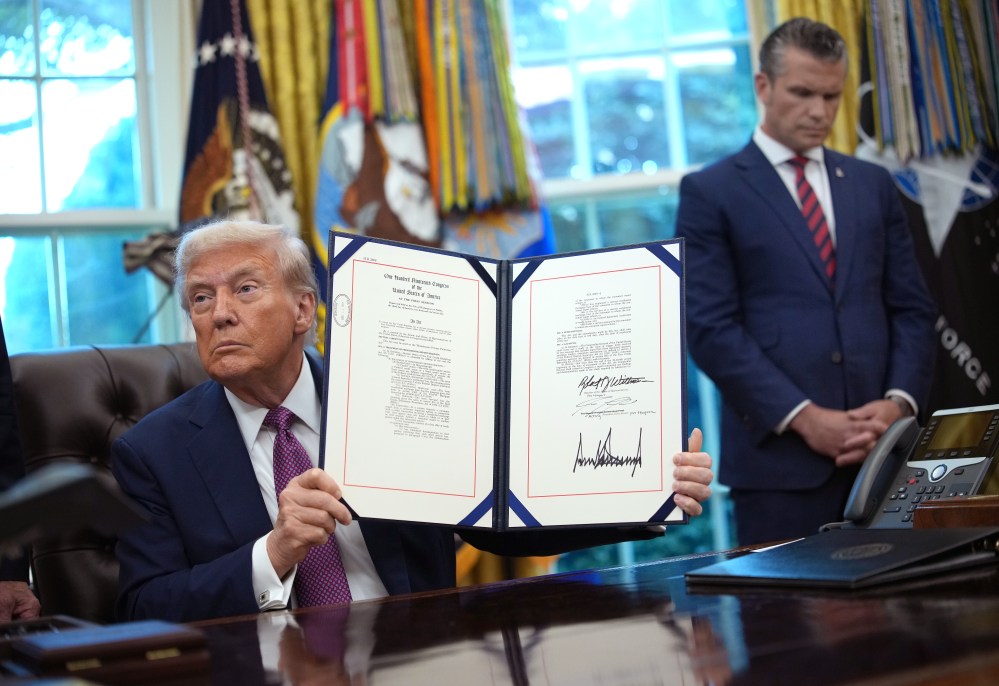
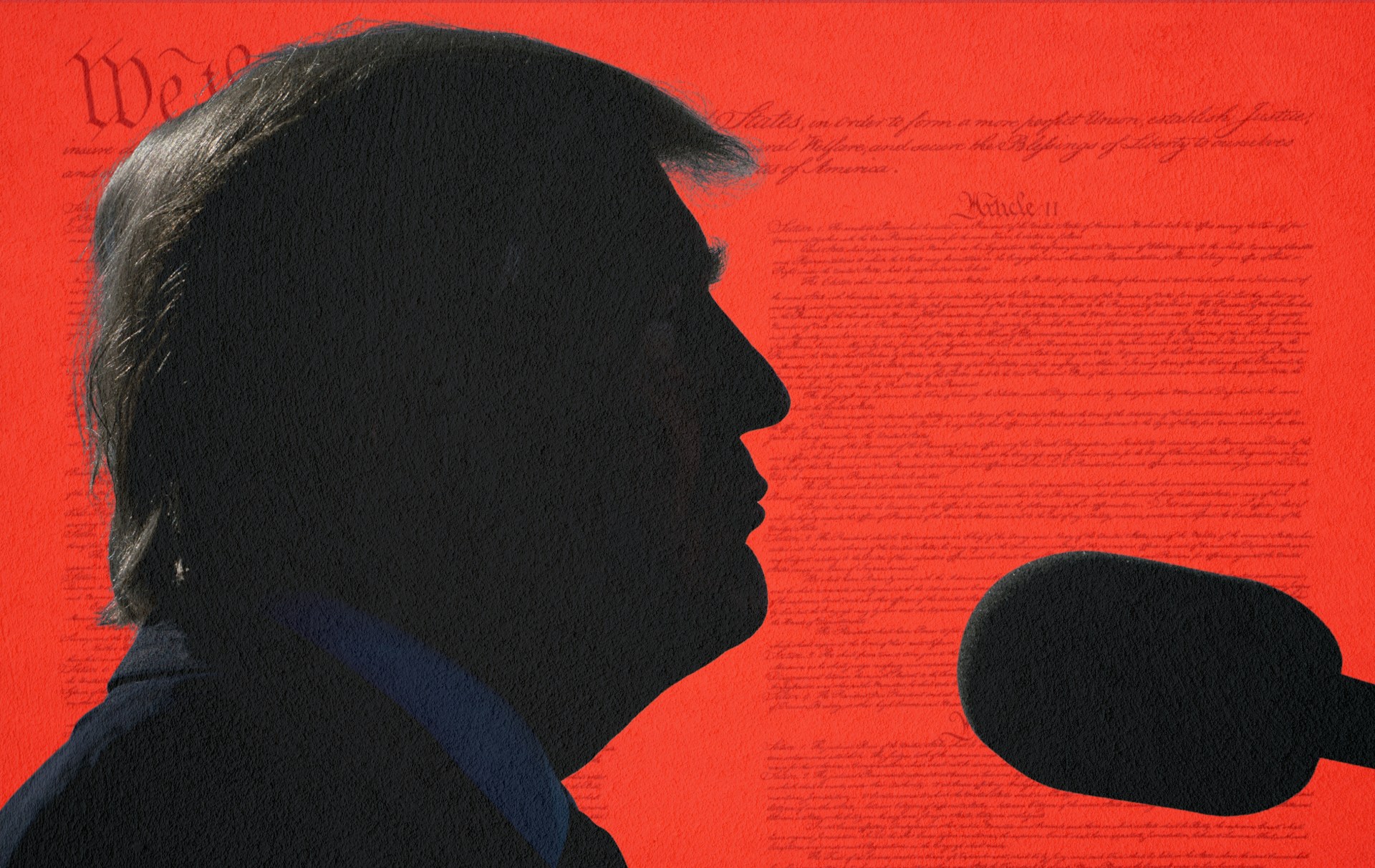
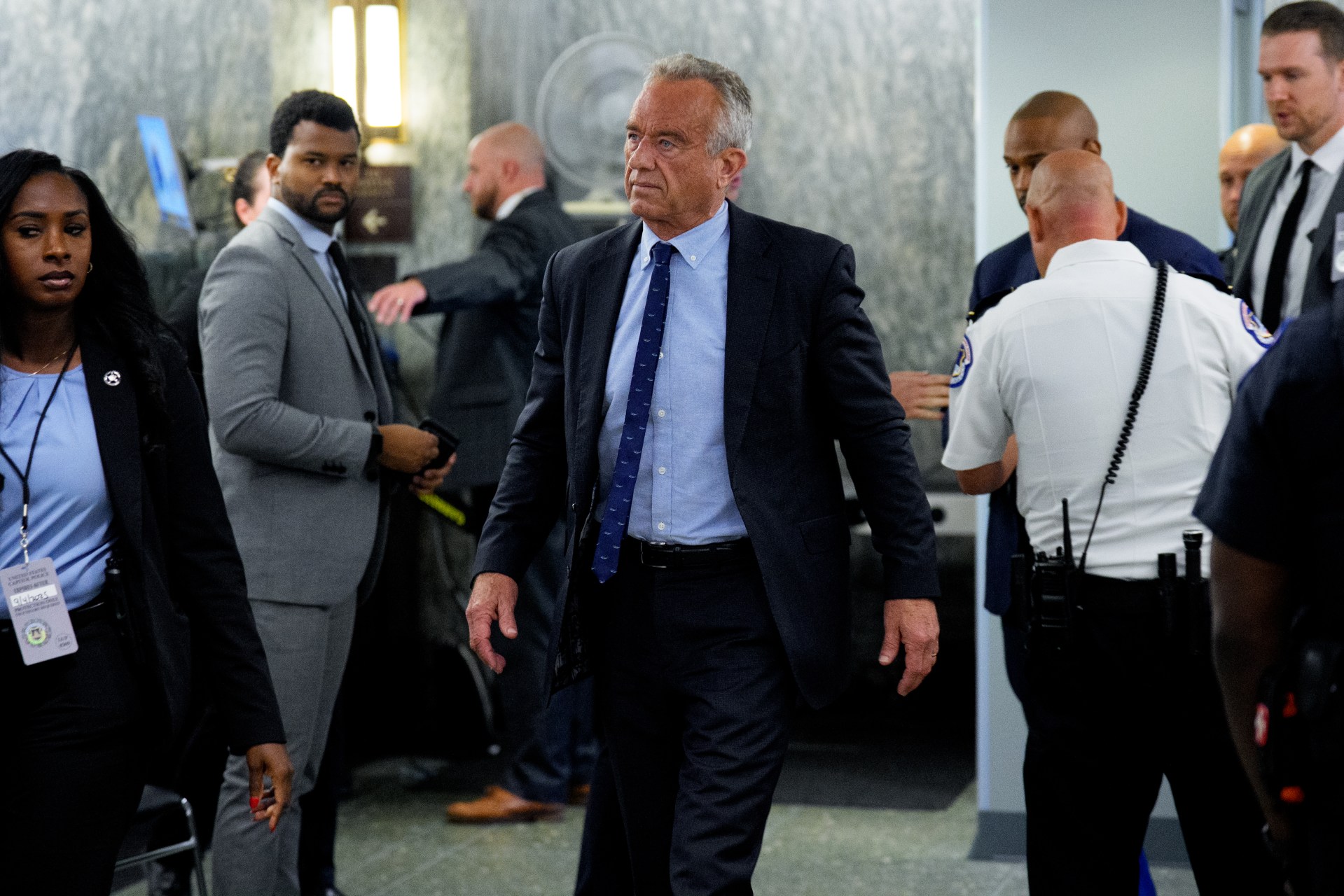
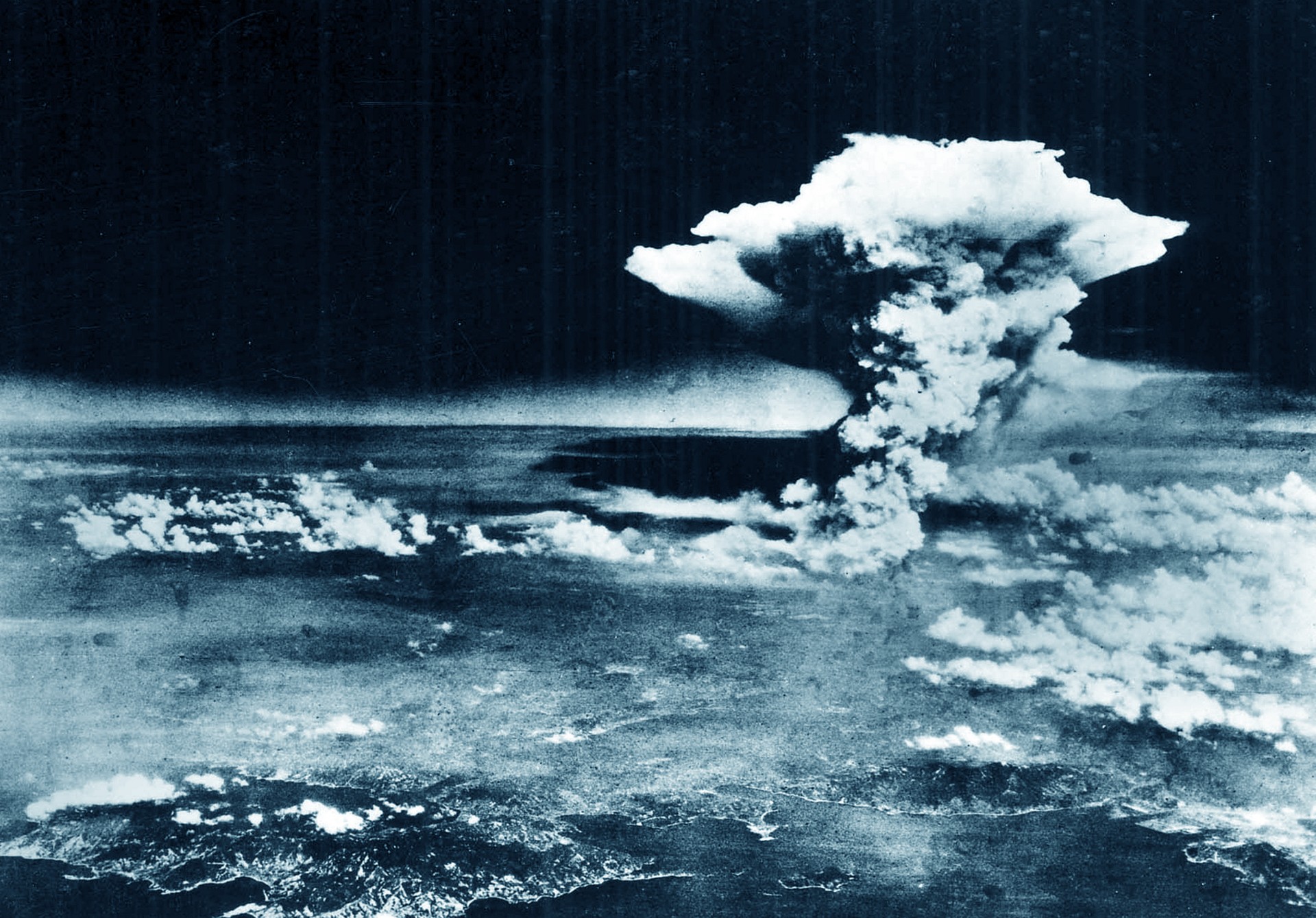

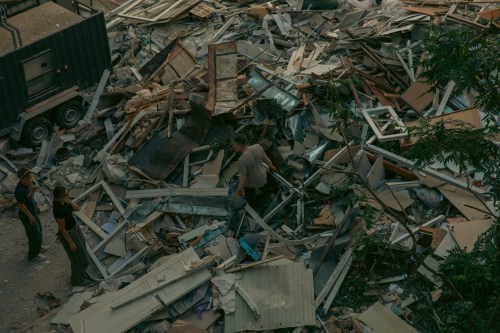
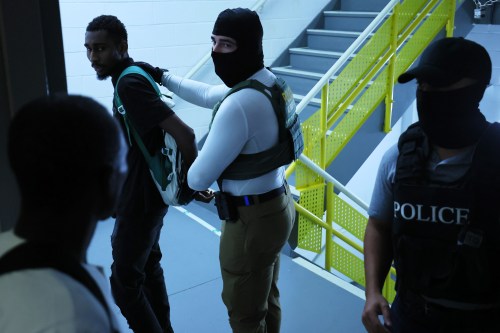




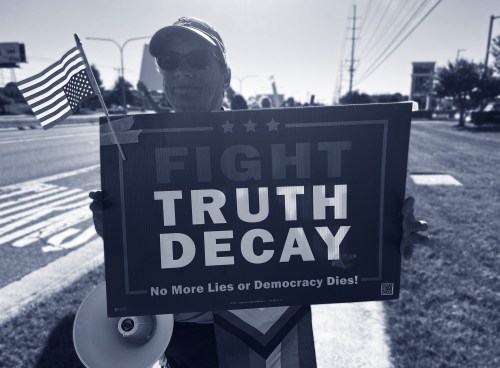
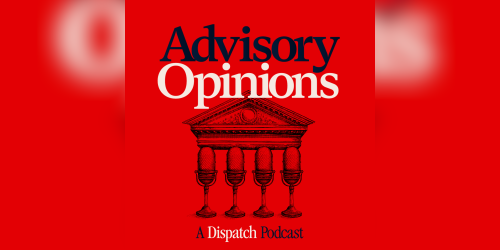

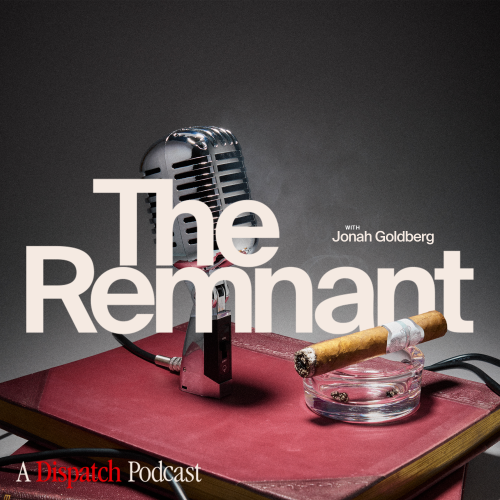

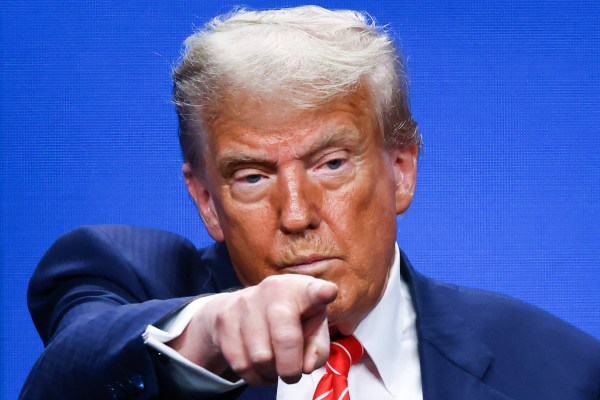

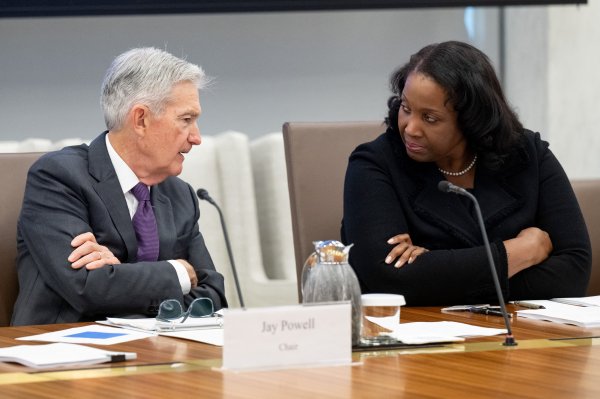
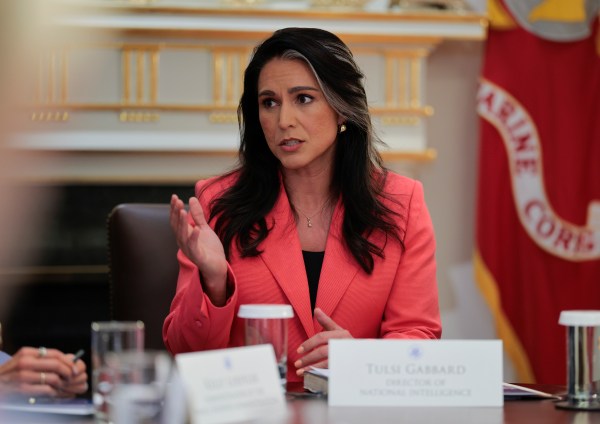
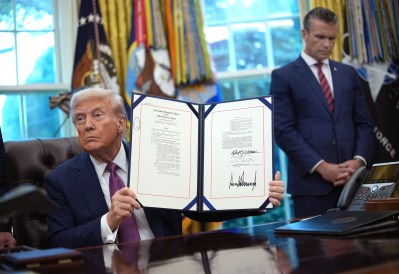
Please note that we at The Dispatch hold ourselves, our work, and our commenters to a higher standard than other places on the internet. We welcome comments that foster genuine debate or discussion—including comments critical of us or our work—but responses that include ad hominem attacks on fellow Dispatch members or are intended to stoke fear and anger may be moderated.
With your membership, you only have the ability to comment on The Morning Dispatch articles. Consider upgrading to join the conversation everywhere.